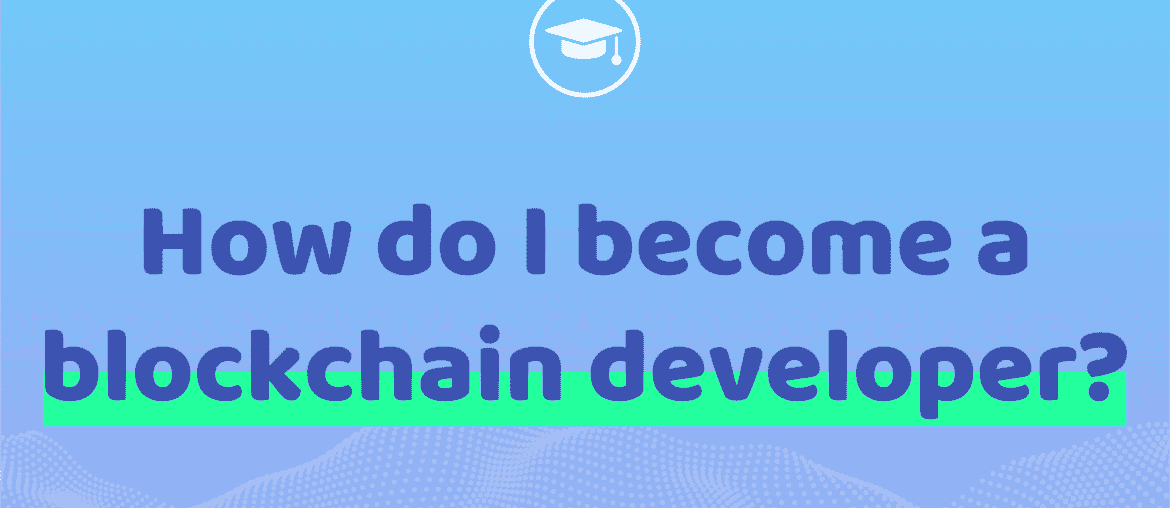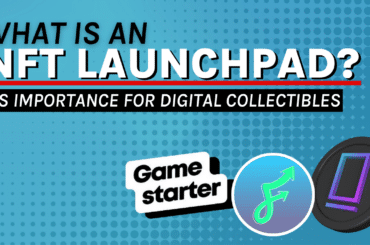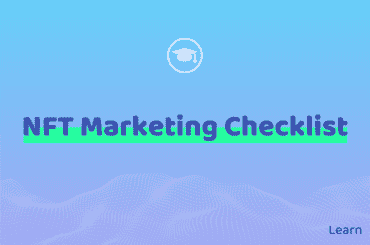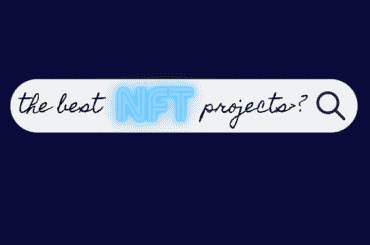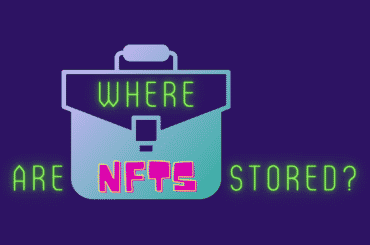Blockchain technology is gaining momentum as the most promising technology with its potential to function as a secure and transparent way to share data. Built on a decentralized peer-to-peer network, blockchain offers trusted transactions without third-party verification, creating a universal level of trust between trading parties.
Knowing blockchain technology is growing at a rapid speed, it would make sense to consider jumping into it as a potential career. As the Blockchain market is growing and gaining traction, more and more developers are interested in working with this technology.
There is a blockchain project for almost any need you can think of and by learning the essential skills necessary, you would position yourself at the forefront of the demand for blockchain development.
Table of Contents
What Does a Blockchain Developer Do?
Blockchain development depends on developers who write open-source code that allows businesses to manage and store data on a decentralized global platform. They create technologies for securely storing and transferring data, allowing businesses to save time and money when working with multiple cloud storage systems.
There are two types of Blockchain developers, each contributing to the success of blockchain development in their specific way. The first type — the Core Blockchain Developer — designs and develops the blockchain architecture. In essence, the Core Blockchain Developer creates and builds a secure foundation for the blockchain system.
The second type — the Software Blockchain Developer — builds upon this secure foundation and creates the blockchain system from scratch.
Blockchain software developers are in growing demand as the need for blockchain services continues to increase. These individuals need to have a broad scope of development knowledge and expertise in blockchain technologies that will make them stand out.
Blockchain software developers are the people that use the core web technology built by other developers to create decentralized apps. These apps will soon be dominating our online lives, integrating with content delivery networks and creating a new paradigm of how we play, share, and collaborate.
Everyday responsibilities and roles of the Blockchain developer are:
- Design the Blockchain protocols.
- Design the network architecture that can be used for centralizing or decentralizing the data.
- Backend development according to the Blockchain protocols.
- Developing front-end designs according to client requirements.
- Developing and monitoring any smart contracts.
Blockchain developers are required to stay connected with clients and understand their needs, no matter how unreasonable they may seem. While the technology is easy to implement and use, it’s important for developers to developers need to be able to work within the constraints of legacy systems. And the fact is, it’s all about creativity – any software manager knows that artistry is the backbone of any technical job.
Types of Blockchain Developers
As explained above, there are two kinds of blockchain developers. The first kind builds core infrastructure, creating a secure foundation for new systems to be built in the future. The second kind creates applications on top of existing infrastructure and creates new ways for people to use blockchain technology.
Core Blockchain Developers
Core blockchain developers are essential to building a blockchain-backed infrastructure and ensuring that the system functions smoothly. Their primary responsibility is creating and deploying the blockchain architecture that supports a particular product or application. For example, the consensus protocol defines how members of a decentralized network agree on using the blockchain. They also decide upon the methods for using and sharing the resources stored on a blockchain network.
Blockchain Software Developers
Blockchain software developers design and implement blockchain networks as per the core developer’s plan. They develop decentralized applications that run as envisioned under a set of smart contracts, which are computer protocols intended to digitally facilitate, verify or enforce the negotiation or performance of a contract. They make sure that their applications continue to run smoothly by monitoring and updating them in real-time. They integrate blockchain networks with other existing technologies to create a complete ecosystem.
Back-End Developers
The backend developer is equally a coder and an architect, working on both the front-end and back-end of software development. The key to a successful project lies with this developer, who works closely with the designer to ensure that their ideas come to fruition in code.
Smart Contract Engineers
Smart Contract Engineers are highly-skilled and crucial to the success of any blockchain project. Not only do they audit smart contracts, but they also develop them with precision so that the terms in one contract are reflected in others, ensuring that business processes can continue as planned.
Skills Needed to Become a Blockchain Developer
To be successful at blockchain development, one must possess a combination of skills.
Cryptography
The blockchain is a combination of technology, cryptography, and data structures — so if you’re interested in developing on the blockchain or have an interest in different cryptographic techniques, such as hashing algorithms like SHA256 or SHA512, you’ll be well equipped to work with blockchain technology.
In cryptography, other methods such as hashes such as kcak256 and SHA256 can be used except in asynchronous cryptography.
Cryptonomics
The development of cryptocurrencies and distributed ledger technology (DLT) is an exciting realm with lots of new information. Instead of simply focusing on the technical aspects, you should learn about the societal implications, too.
The rise of blockchain-powered projects is changing how people operate and interact with each other. By informing yourself about the different ways this technology can be used, you can become a more informed developer.
Web Development
Websites are a vital part of how blockchain platforms can influence cryptocurrency consumers and investors. If you want to be a successful blockchain developer, you need to have knowledge of coding blockchain systems and applications on both front-end and back-end development as well as graphical interfaces for dApps.
Data Structures
Developers must understand not just the encryption and security elements of blockchain technology, but also its data structures. Any system with a database requires a strong knowledge of data structures — a blockchain developer without this know-how will be unable to craft databases that can hold the massive amounts of information that blockchains require.
Smart Contract Development
Smart contracts have quickly become the hottest new use case of blockchain technology. They’ve been around for a while, but they’re only just now being used on a large scale. While blockchains like Ethereum make them easy to implement, there’s still a long way to go before smart contracts can be used for anything other than simple operations. This is because building a reliable Smart contract is difficult — it requires specialized knowledge of networks and their programming languages like Solidity and Serpent.
Blockchain Architecture
Blockchain developers must now be able to understand its architecture centralizedYou must know, to build simple and secure blockchain applications. The code is such that it can be executed on a public or private network and has a self-executing feature, which means that one does not need any centralized third party to verify the transactions.
Why Become A Blockchain Developer
The blockchain is a revolutionary technology. It has the potential to transform sectors including Fintech, logistics and transportation, energy, supply chain management, education and so much more. With an understanding of how it works, blockchain developers can use their expertise to build truly diverse applications.
High Demand
84% of companies surveyed by PwC in 2018 were working with blockchain. Both established and smaller companies are looking for skilled blockchain developers, as the technology is creating new opportunities for businesses of all sizes. Blockchain developers are already in high demand, but they will just get higher with time. The employment rate will increase by 276% by 2022, according to reports.
Amazing Pay
In the United States, a blockchain developer’s salary is an average of $150,000 to $175,000. Some of this high salary is a result of their experience and skillset, but the industry itself is only growing at a rapid clip. As organizations and businesses continually innovate in the space — creating more hot new projects and inventions — demand for blockchain developers will only rise.
Ability to Teach Others
Blockchain developer jobs are the perfect way for people to earn a decent income by using their skills and helping others learn more about blockchain development. Online tutorials can be a great way to help people learn more about the industry, making a little bit of money in the process.
Blockchain is still new and exciting, but there’s a ton of misinformation floating around out there. You must know what you’re doing — or who you’re working for.
Comprehension
As a blockchain developer, you will be able to read and understand projects of several blockchain markets, code, and evaluate different mechanisms of projects such as consensus, security, scalability, decentralization, etc.
Improved Digital Identity and Security
One of the most exciting things about blockchain is how it can help organizations secure their operations and blockchain platforms. With blockchain, they can protect against identity fraud, keep track of data that can lead to credit card fraud, and eliminate counterfeit products.
Contribute to New-Age Technologies
Blockchain can be integrated into other technologies because it’s simply a type of database — with the right apps, this database can be accessed via any compatible device. This connectivity is incredibly important; even in industries that aren’t typically associated with the tech, Blockchain solutions are set to transform the way companies work.
Challenges in Blockchain Development
Blockchain technology is not a silver bullet, but it’s an innovative new technology that’s still finding its way into the mainstream. There are plenty of limitations to the blockchain that is currently being explored and tested. Many blockchain companies have deep concerns about this type of technology.
Even with all the challenges, blockchain development has proven to be a useful tool in several blockchain market industries. Industries that have invested in blockchain have seen significant change — whether through more efficient supply chains, quickened verification processes, or streamlined reconciliation.
The truth is, that many of the top blockchain development companies aren’t realizing the full benefits of blockchain technology because they’re using the wrong mechanisms for their blockchain projects.
Blockchain Development Companies
Cryptocurrency and blockchain technology have emerged in recent years as the next frontier in digital commerce. Now, a growing number of businesses are exploring blockchain’s functionality to transform their operational processes and systems.
Because the global blockchain market of several blockchains is expected to hit $39 billion by the year 2025 – the United States alone accounts for 56% of the global blockchain investments- finding a top blockchain development company shouldn’t be impossible.
LeewayHertz
LeewayHertz is a premier blockchain development company that offers end-to-end solutions ranging from blockchain consulting to design, deployment, maintenance, and, upgrades.
With over a decade of experience in building enterprise applications, LeewayHertz experts have deep knowledge of artificial intelligence, the internet of things (IoT), augmented reality/virtual reality, and cloud services.
Intellectsoft
Intellectsoft is a software development company that works with businesses across several industries (including e-commerce) to automate processes and improve efficiencies. With headquarters in Moscow, the company’s expertise spans several areas — blockchain, artificial intelligence, the internet of things, cloud computing, and augmented reality.
With more than 60 employees spread across its international network, Intellectsoft has developed software solutions for startups and fortune 500 companies alike as a top blockchain company.
SoluLab
SoluLab is a reputed blockchain application development company that has helped brands across the globe. Their professional team of developers has years of experience working with blockchain technology. With the help of their in-house blockchain development experts, they’ve been able to deliver high-quality software solutions to over 1500 clients. They’ve also worked with The Walt Disney Company, Goldman Sachs, and many more big names. Their client list includes Fortune 500 companies and NGOs across 15+ countries.
Innovecs
Innovecs has developed a platform that brings the benefits of distributed ledger technology (DLT) to an enterprise level by implementing blockchain technology in traditional business processes. The patented process is a combination of different technologies from artificial intelligence, the internet of things, and e-commerce, which helps businesses achieve complete decentralization.
This company helps its customers grow globally by developing platforms that help businesses increase efficiency in money transfers, document management, and loyalty programs.
Altoros
Altoros is building a blockchain tools ecosystem for enterprises that deploy cloud and software solutions. It will empower companies to leverage the benefits of blockchain technology and drive new business models that integrate this emerging technology into their existing business processes. Altoros’ cloud-native platform is currently in blockchain development, with early adopters already utilizing their blockchain services.
Consensys
Consensys is the largest Ethereum development company in the world. Their team of developers and engineers build valuable blockchain solutions for some of the most widely-used platforms in cryptos — such as Metamask, Truffle, Infura, and Quorum.
They also provide support for companies looking to build blockchain infrastructure and find solutions for complex problems through their Diligence tool.
Coinfabrik
Coinfabrik has been an enterprise software development company for over a decade, and is now an expert in blockchain because of their entrance into the cryptocurrency market working with cryptocurrencies and other blockchain projects to build services: TrustStamp — an identity verification solution with smart contracts, Sig3 Multisig — a multi-signature anti-fraud system, and Jetcoin — a lending platform that enables peer-to-peer crypto loans.
Empirica
Empirica delivers blockchain-powered products. Their software helps businesses at every stage of their development and growth, providing them with the tools they need to enhance income, grow their communities, and increase efficiencies. Empirica offers blockchain-based solutions in a variety of industries and sectors, including finance, healthcare, e-commerce, and supply chain management.
With offices in both New York and London, they serve entrepreneurs around the globe.
MLG Blockchain
MLG Blockchain Development is a leading firm in the blockchain space and has a strong reputation for delivering top-notch results to clients of all shapes and sizes. With a distributed team across 10 countries, the company is capable of providing efficient, high-quality services to its international clientele.
With years of experience managing smart contracts and blockchains, MLG works with startups and larger enterprises alike to create viable blockchain-based solutions for businesses around the world.
Chain
NineHertz is an innovative software development company that uses emerging technologies to meet the challenges of the future. The company offers a wide array of services, including IoT, VR, and mobile app development — but its new developments are always at the forefront of technology. Its team is comprised of professionally trained developers who utilize cutting-edge tools to stay ahead of the market and respond quickly to customer needs.
Zynesis
Zynesis is a cutting-edge blockchain consulting company, specifically focusing on Ethereum-based technologies and decentralized application development. Based in Singapore, the company is one of the most sought-after in the industry, especially by startups.
DXMinds Technologies Inc.
DXMinds’ developers are renowned professionals who deliver innovative and accessible software products, often with a focus on AI. In addition to being the best e-learning and mobile app development company, they specialize in developing web, and enterprise applications that meet clients’ requirements and exceed expectations. They have extensive experience in creating apps for iOS, Android, Google Glass, Amazon Alexa, and Windows 10. They are always ready to fulfill your ideas and turn them into reality.
Blockchain Use Cases
Blockchain’s current use cases are mainly in the financial sector — with several industries adopting blockchain for its security and cost-efficiency. However, it has begun to spread beyond just finance: blockchain has been implemented as a means of tracking supply chains, for instance, and governments have begun experimenting with blockchain as a way to authenticate online voting. More consumer-facing use cases are likely to emerge as more blockchain companies develop.
Financial Services
Blockchain development services in the financial sector can make the trade finance lifecycle more secure. It can be used to send payments, track shipments and authenticate documents. The technology could reduce processing times and lower capital requirements, especially for smaller businesses entering international markets for the first time.
Investment Management
There are many opportunities for blockchain companies to improve investment management. For instance, this technology can be used to make transactions transparent and traceable, as well as increase collaboration across the supply chain.
The blockchain can also be used to improve transaction validation. Since every party in a transaction can easily validate the record, businesses can prevent fraud and theft.
Cross-Border Transactions
The globalized economy requires a lot of cross-border transactions, and businesses are jumping on the opportunity to create new business models. They are using blockchain technology to create an easier way to send money across borders. Ripple, for instance, is a company that focuses on instant transactions and international transfers. Blockchain, technology, allow businesses to have transparent, secure, fast, and simple payments in one day or less.
Trade Finance
One of the biggest problems with trade finance today is that there are too many steps in one transaction. To send physical shipments from one point to another, you first have to get a contract from the buyer, then validate and confirm it with the seller, and then get a letter of credit (a bank guarantee). If anything goes wrong with any of these steps, the deal falls apart — and that can be financially ruinous for both sides.
Blockchain-based trade finance platforms on the other hand are not only more efficient but also give access to a wider reach of customers. Currently, trade finance is still an inaccessible field for small businesses — as only large firms can afford the high capital requirements, a substantial amount of paperwork, and potential delays by banks.
Capital Markets
Blockchain technology is reshaping capital markets in a big way — and the funding for blockchain startups and blockchain applications for capital market players is increasing with it. The technology, which is best known for being the system that supports cryptocurrencies such as Bitcoin, has been gaining traction for its ability to streamline databases and remove third parties from transactions.
Public Sector
Blockchains are in a unique position to pave the way for more effective public service. With a blockchain registry, for instance, the government can issue and authenticate official documents or track assets of individuals and businesses — from houses to patents.
Blockchains could be used to address inefficiencies in current systems and increase the effectiveness of public service delivery.
Transparent Budgeting
Although corruption is a global issue, the Corruption Perceptions Index shows that two-thirds of the world’s countries fall in the highly corrupt category. A potential application of blockchain technology is bringing transparency to the government’s budgeting decisions by making them accessible to the public. This could lead governments to act more responsibly and avoid waste.
Digital Voting
As blockchain technology can solve the problems surrounding voting more transparently and securely than any other technology, we need to ensure that we aren’t using it to create a world where one individual or organization can have too much power. We should be using blockchain technology to decentralize the voting process so that there is no single point of weakness in our elections.
One of the most exciting uses of blockchain technology is a decentralized voting system.
Internet of Things (IoT)
IoT devices can be integrated with IBM Blockchain to create tamper-resistant records of shared transactions without compromising data security. IoT devices send data to private blockchain networks, which are then stored for further processing and analysis. Companies can use these tamper-proof datasets to make smarter business decisions — without being limited by centralized infrastructure or control.
Smart Appliances
Integrating blockchain into your smart home significantly improves your brand’s sales and the customer experience. Instead of having a separate base station for smart devices, you can integrate the functionality of each device into a single platform. Users will have total control over their home, remotely monitoring it from anywhere in the world.
Integrating blockchain into your smart appliance significantly improves your brand’s sales and the customer experience.
IoT Monitoring
Blockchain is not just about decentralization; it’s about transparency. With the aid of IoT sensors, organizations can digitize their assets to provide a transparent tracking system. Blockchain records all the information about the asset — including its location and condition — in one place, making it easy for businesses to track them.
Blockchain has a huge potential in maintaining the quality assurance of products.
Smart Contracts
Smart contracts are a cutting-edge technology that brings innumerable benefits to businesses. The blockchain is not only distributed and decentralized, but also trustworthy. This eliminates the need for third-party verification or escrow, making smart contracts faster and more reliable than conventional contracts.
Insurance
Blockchain can help companies reduce costs associated with verification, payment, and claims. For example, if a business needs to verify the coverage between companies and reinsurers, they can do this easily by accessing their company’s blockchain. If a business needs to process payments for insurance claims, all they need to do is insert the details of the transaction and it will automatically be verified.
Supply Chain Management
Blockchain technology is the perfect forum for boosting supply chain operations, as it can help companies optimize their inventory and delivery of goods, track their products from their source, and even provide consumers with real-time updates about the origin of their purchase.
Financial Data Recording and Management
Records management is the process by which organizations manage the creation, storage, retention, and disposal of records. Records are typically stored on paper or electronically; both have inherent flaws. Blockchain technology offers a way to secure and authenticate intellectual property at a lower cost and higher efficiency.
Copyright Management
The blockchain-based code copyright management system implements the verification, storage, and inquiry of code copyright. The system stores copyright information in the blockchain and is unique, accurate, and immutable — which means that anyone can confidentially search for information without a third party meddling in the data. As a result, companies can keep track of their products and even verify supply chain records (like where products came from or how many batches were created) with clarity and ease.
Clinical Trial Tracking
The application of blockchain in clinical trials will take multiple forms, but its key benefits include the ability to improve real-time decision making, ensure robust governance across geographical divides, enhance the running of trials, minimize the repetition of manual or repetitive tasks, and fully document the trial’s entire process thanks to smart contracts.
The use of blockchain in clinical trials is already generating a range of helpful benefits for scientists and healthcare providers.
Property Ownership Transfer
In a blockchain, the transfer is done through a digital signature generated by applying the private key. This identity-based signature ensures that only the sender can make the transaction — no one else can. Additionally, the signature prevents the transaction from being changed once broadcast to the blockchain network.
Personal Identity Protection
Using blockchain for identity management helps keep data secure. Users have the freedom to decide who can see their information and when. This level of control over their data leads to more trustworthy relationships between individuals, businesses, and governments.
Digital IDs (Passports, Personal IDs, Marriage Certificates)
The blockchain is capable of making record-keeping more reliable by encrypting personal identification IDs and allowing citizens to access their information. With the native encryption that blockchain provides, individuals can be in control of their digital data and how it is utilized by different parties.
Blockchain technology has been promoted as a way to digitize records and improve their accuracy, efficiency, and audibility.
Wills and Inheritances
Technology has given us new ways to create, distribute and validate wills. Online will-writing portals allow testators to create their digital testaments using their smartphones — which can be shared with family members and stored in cloud drives for safekeeping. However, these documents are vulnerable to cyber-attacks and hackers. As a solution, a blockchain-based will be created, validated, stored, and distributed through a decentralized network that is immune to tampering.
Steps to Becoming a Blockchain Developer
Blockchain technology is a rising sector that continues to show political and economic promise. Originally used for Bitcoin and cryptocurrencies, a blockchain is now more commonly used for storing data and managing contracts. To become successful in blockchain development, follow the steps below.
1) Learn The Basics of the Blockchain Platform
Like pretty much any other modern technology, you can’t just dive right into blockchain technology without understanding the basics. It’s not a simple topic; there are many basic concepts that you need to understand beforehand. First, it’s important to learn about decentralization in detail. You should understand what it is, as well as its public and private approaches, its use of consensus mechanisms to achieve decentralized decision-making, and so on.
You also need to keep yourself up-to-date on the basics of blockchain development. This includes learning about the most common blockchain tools and understanding the market enough to speak authoritatively about it.
You must understand how to use the basic cryptographic tools, like digital signatures and RSA, because encryption will be a central theme when we look at securing the data.
In addition to the information you’ve already learned, you’ll need to learn about the blockchain ecosystem. Blockchain has grown tremendously in the past few years, and now that its ecosystem is more abundant than ever, budding entrepreneurs must know, how to take advantage of it.
Become familiar with enterprise blockchain platforms like Hyperledger, Quorum, Corda, and, Ethereum Enterprise.
2) Learn How Blockchain Works
Now that you have a general understanding of blockchain technology, it’s time to implement it in the real world. While there are thousands of online developers who claim to be blockchain developers, many haven’t developed anything in the real world. To see the potential of blockchain, you’ll need to start with a simple use-case like cryptocurrency.
Cryptocurrencies are just one use-case of blockchain. Though they’re not ideal for day-to-day use, understanding their basics is an excellent way to get started with blockchain technology in general. By spending some time getting familiar with cryptocurrencies and the way they work, you’ll gain a crucial foundation that can be used to build and develop new blockchain applications.
3) Start Coding
Any aspiring blockchain developer needs to become familiar with coding smart contracts. Solidity, a programming language developed specifically for Ethereum, is the most widely used language in dApp development.
Aspiring developers can also enhance their skills by browsing through the open-source code of existing platform solutions.
4) Understand Different Programming Languages
A good Blockchain developer needs a healthy mix of programming language skills. Basic knowledge in several core programming languages (i.e. C++, SQL, JavaScript, and Python) is essential to developing a functional distributed ledger network. If you can maintain fluency in two or more of them, this will be a major advantage in your career.
Solidity
Solidity is a Javascript-like programming language that developers can use to build smart contracts and decentralized applications on the Ethereum blockchain. Since its introduction in late 2015, it’s become one of the most popular languages for developing decentralized applications.
Solidity is a contract-oriented, high-level language whose syntax is similar to that of JavaScript and it is used in the development of smart contracts. The largest implementation of this language is on the Ethereum platform.
C++
C++ is one of the most popular programming languages in the world. This versatile, general-purpose language can be applied to almost any line of work — it’s used for all sorts of blockchain projects and in most sectors. Its flexibility makes it an excellent choice for beginners looking to branch out into other fields.
Java
Java is one of the most important programming languages to have ever been created. Because it’s portable, you can write a program in it and then run it on almost any computer. Because of this, Java has been used to develop many different programs online — and that includes blockchain projects like Ethereum, NEO, IOTA, and hyper ledger Fabric.
Python
Python is the #2 programming language in the world (behind JavaScript, the web programming language). It’s becoming an excellent tool for a wide variety of applications: many Internet of Things (IoT) devices use Python; it was used to make Google and YouTube apps; and, it has become a go-to language for most blockchain companies.
Python is easier to learn than other programming languages because it is close to plain English.
Simplicity
Simplicity is the next-generation blockchain language that anyone can use to write smart contracts with. This easy-to-use language is based on the Ethereum Virtual Machine (EVM) and JavaScript’s syntax, allowing developers to read and write smart contracts in whichever programming language they are most comfortable with.
5) Take Blockchain Developer Courses
Learning the ins and outs of blockchain technology isn’t easy. From app development to Bitcoin creation, there’s a lot of knowledge to take in and put into practice. Courses tailored specifically for budding blockchain developers are worth your time and money, as they include core programming languages, educational videos, and quizzes to test your knowledge.
In Conclusion
There are many, many different roles and positions for people who are working within the blockchain field ranging from developers, to project managers, to business consultants.
Many businesses are creating positions specific to the field. In particular, companies are hiring blockchain developers because they need these specific individuals to build out the architecture and protocol of blockchain technology.
Blockchain developers are responsible for the actual build of the blockchain software. They construct the architecture and protocol and create decentralized applications to supervise them from front and back.
Blockchain development is now one of the most exciting and profitable careers. Whether you’re looking to diversify your skillset or launch a new project, there has never been a better time to learn about blockchain and cryptocurrency.
By focusing on the fundamentals of blockchain technology, you’ll be able to understand why it’s becoming so popular — as well as what hurdles will need to be overcome in the coming years.

